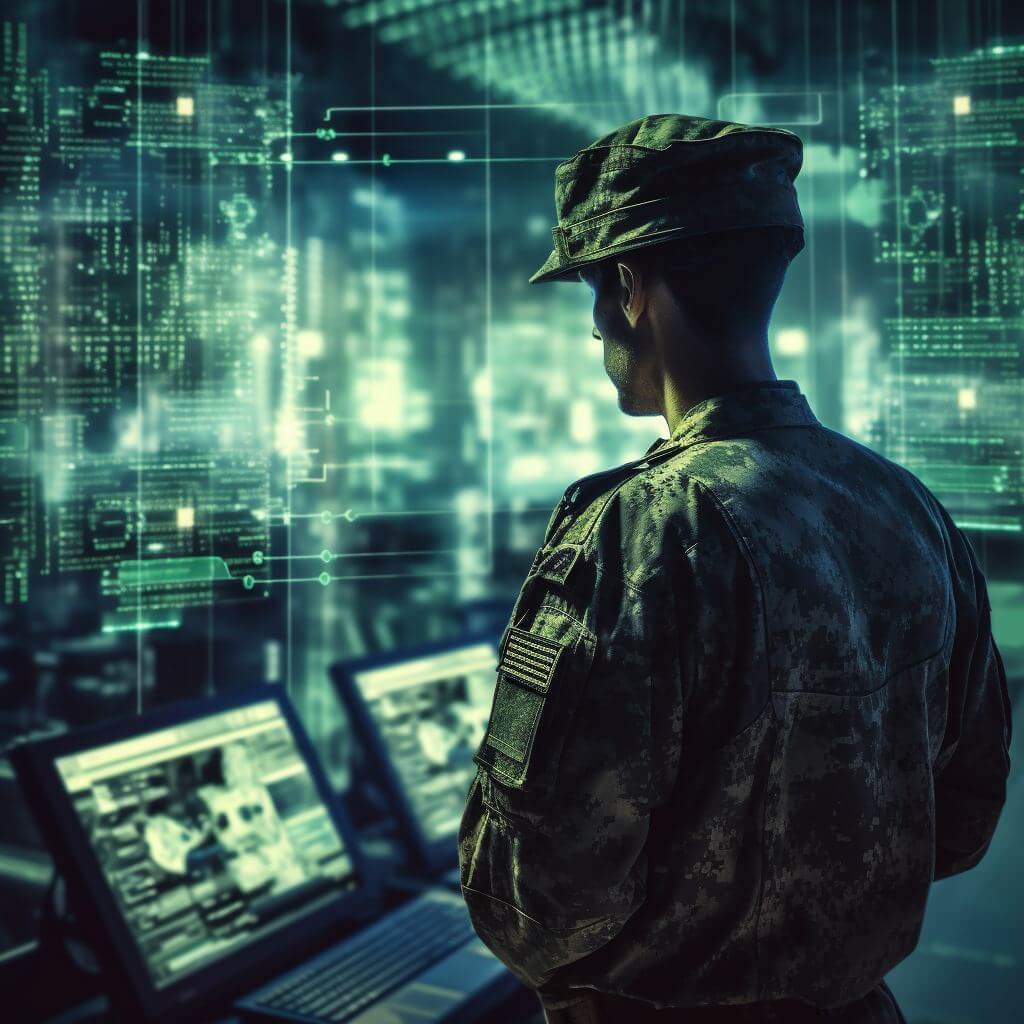In a recent exploration of the normativity of state-sanctioned killing, the utilization of machine learning in U.S. military intelligence products emerges as a pivotal point of contention. Beyond the technical and ethical debates, an institutional obstacle comes to light, challenging the foundational purpose of the military. This exploration delves into the complex landscape where civilian surveillance, machine learning, and military judgment converge, unraveling the normative fabric of civil-military relations.
Military enterprise and the state-sanctioned killing
In 1999, Carl H. Builder envisioned a transformative shift within the U.S. military enterprise, heralding the onset of the digital information age. This epochal transformation has not merely introduced novel tools and methodologies but has given birth to an entirely new institution, redefining roles and missions in unprecedented ways. Fast forward to the present, where the advent of machine learning models, meticulously trained on expansive datasets sourced from widespread civilian surveillance, serves as the linchpin in unveiling a paradigm-shifting relationship between the military, society, and the state.
This narrative meticulously navigates the evolving dynamics spawned by this symbiotic tryst, delving into the implications of this newfound connection. Channeling insights from John Keegan’s seminal work, “A History of Warfare,” the narrative immerses itself in the profound cultural gap that separates the military from society at an institutional level. At this critical juncture, the very normativity of state-sanctioned killing, intricately woven into the fabric of military and societal institutions, stands on the precipice of transformation.
Beyond the conventional discourse surrounding technical and ethical challenges, this narrative shines a spotlight on the often-overlooked normative implications of integrating machine learning into military intelligence. By transcending traditional debates, it underscores the seismic shifts unfolding in the realm of military judgment and the intricate dance between technology, ethics, and the age-old practice of state-sanctioned killing.
Machine learning’s impact on military decision-making
As the state relinquishes its custodial responsibilities, the commercial machine learning industry steers clear of addressing the institutional unravelling caused by its practices. The military, entangled in a web of tactical acumen and strategic aims, grapples with the imperative of sound judgment in the face of technological disruptions. The narrativeunderscores the nuanced challenges of applying machine learning to intelligence production, emphasizing the need for a careful balance to prevent institutional undoing.
Machine learning’s application to military intelligence production involves training models on large datasets derived from civilian surveillance. Beyond technical challenges like bias and the black-box problem, the discourse uncovers a normativity problem within the entire digital ecosystem. The right to obscurity in a free and open society is examined in the context of mass surveillance, raising questions about the citizen’s direct connection to killing and the implications for civilian-military relations.
In the labyrinth of techno-centric discourse, the collision of machine learning and military affairs demands a closer examination of the normativity of killing as the bedrock of the modern state. The transformative nature of technology mandates a reevaluation of societal norms and the reciprocal transformation between the military and society. As machine learning becomes integral to military judgment, scholars, practitioners, and citizens alike must grapple with the urgent need for a nuanced understanding of this collision. How can society navigate the normative abyss created by machine learning in military intelligence, and what implications does it hold for the foundations of state-sanctioned killing?




